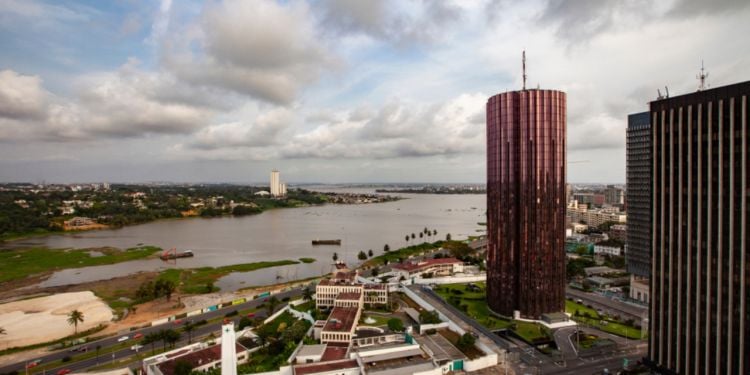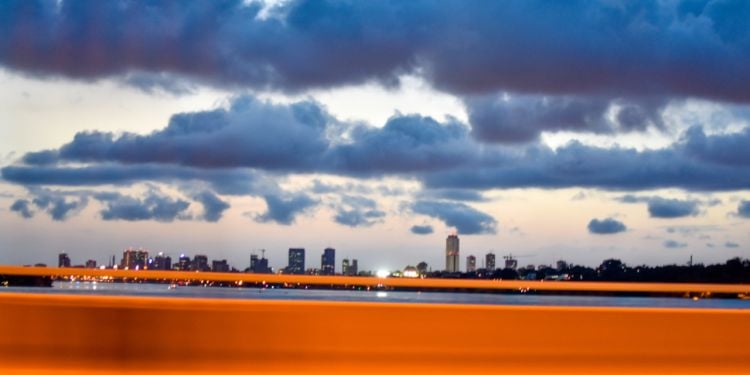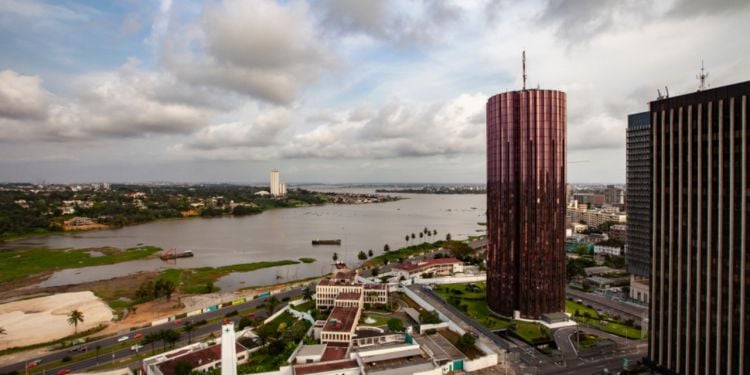Living in Ivory Coast: the ultimate expat guide
Everything you need to know for a successful life in Ivory Coast.
As a developing West African country, Ivory Coast is deemed to be a land of opportunities for expatriates. Famous for the production of cocoa and coffee, it has been attracting foreign professionals and investors for a few years, especially due to its vibrant services and telecommunications sectors.
Whether you wish to work or set up a business in Ivory Coast, you will be entitled to rather simple procedures.
West Africa is deemed to be a land of opportunities for expatriates. So if you are looking forward to settle and work in one of its countries, you might be seduced by Ivory Coast. Bordered to the North by Mali and Burkina Faso, to the West by Liberia and Guinea and by Ghana to the East, Ivory Coast stretches over 322,463 km².
The South coast, for its part, is bordered by the Atlantic Ocean over some 520 km.
Demography
As a rapidly developing country, Ivory Coast has a booming population which, to date, amounts to more than 20 million inhabitants. Immigration also accounts for this surprising population growth. Indeed, many expatriates have chosen to settle there over the years, especially people coming from the Economic Community Of West African States (ECOWAS). Hence, you are likely to come across expatriates from Mali, Guinea, Senegal, Liberia, Ghana, Lebanon, Syria, as well as Asian and European nationals.
Languages
Being a French-speaking country, Ivory Coast is a member of the Organisation internationale de la Francophonie. In fact, French is spoken by 70% of the local population, but other languages such as the 'sénoufo', 'dioula', 'bété', 'yacouba' and 'agni' are also spoken in the North and the South the country. Finally, dialects such as 'néyo', 'dida', 'nyabwa' and 'krahn' are widely spoken elsewhere.
Economy
In 2013, Ivory Coast's Gross Domestic Product (GDP) amounted to US$ 31,06 billion according to the World Bank.
The local economy mainly relies on agriculture. In fact, it ranks 7th worldwide in terms of coffee production. Cocoa culture is as important in Ivory Coast which ranks 1st ahead of Ghana. The production of palm and coconut oil, cotton, rubber-wood, cola nuts, is also very significant.
Food crops come in the second place. Ivory Coast produces namely maize, rice, yam, cassava, plantain, citrus, bergamot and bitter orange.
Coffee, cocoa, sugarcane, pineapples, banana, cashew nuts and palm oil, as well as fruits such as mangoes, papaya, avocado and citrus, are exported in significant quantities to Europe in significant quantities.
Besides agriculture, Ivory Coast's oil reserves are also a major asset.
Finally, the tertiary sector contributes up to half of the national GDP despite its weakness and decline since a few years.
Politics
Ivory Coast has been particularly afflicted by a political and military crisis for nearly 10 years. Most sectors, including tourism, have been affected. However, the country has been trying to get back to normal and become a safe place once again.
Climate
Ivory Coast has a warm and humid climate which has equatorial characteristics on the coast and semi-arid and tropical in the North. Temperatures generally vary from the North to the South and according to the different seasons, on an average of 28 °C.
Seasons, for their part, vary according to the zone. The two major seasons are the equatorial climate zone and the tropical climate of the savannah. In the first zone, the dry season last from December to April, followed by the rain season from May to July. In August and September, the small dry season comes until October. The small rain season then lasts from October to November.
The tropical humid climate of the savannah, for its part, goes from the North of the Southern forest region to the South of the savannah region. Temperatures vary between 14 °C and 33 °C with four seasons: two dry seasons (from November to March and from July to August) and two rainy seasons (from June to October and from March to May).
The savannah region, for its part, experiences a dry savannah climate with two extreme seasons (dry and rainy), with daily temperature variations of 20 °C and high humidity going up to 40 to 50%.
Useful links:
Expat.com ' Ivory Coast
Ivory Coast Tourism Office www.tourismeci.org
UK Embassy in Ivory Coast www.gov.uk/government/world
US Embassy in Ivory Coast abidjan.usembassy.gov
Formalities
Find out more on visas, passports and entry requirements to travel to Ivory Coast.

Traveling to Ivory Coast
Formalities related to traveling to Ivory Coast are strict but simple. Find some useful information in this article.
Visas
All you need to know on work visas, work permits, working holiday visas and residence permits to live and work in Ivory Coast.

Visas for Ivory Coast
Do you need a visa to travel to Ivory Coast? What are the different types of visa that apply and related formalities? Find out in this article.
Work
Dive into the Ivory Coast labour market, legal framework and tips on how to find a job in Ivory Coast.

Work in Ivory Coast
Looking forward to move to Ivory Coast? Here are an overview of its labor market and some tips to ...

Setting up a business in Ivory Coast
Looking forward to set up a business in Ivory Coast? Find all that you need to know on related ...

Jobs in Ivory Coast
Discover professional opportunities in Ivory Coast and boost your career.
Accommodation
Explore real estate or temporary rentals in Ivory Coast. Find out more about renting or buying a house or a flat, real estate agents, leases and rental agreements.
Study
Universities, training courses, student visas, registration procedures: all you need to know about being an international student in Ivory Coast.

Study in Ivory Coast
Can foreigners study in Ivory Coast? What does the higher education system look like? Find out in this article.
Health care
Understanding the healthcare system in Ivory Coast: public and private health system, health insurance...
Bank
Navigate the banking system in Ivory Coast: how to choose a bank and open a bank account.
Tax
All you need to know about income tax, the tax system and filing your taxes as an expat in Ivory Coast.

Taxes in Ivory Coast
Do you have to pay tax in Ivory Coast? What are the taxes that apply to expatriates? Find out in this article.
Transport
From public transports to renting or buying a car, explore the best options to getting around in Ivory Coast.

Transports in Ivory Coast
Ivory Coast has a small but developed transport network. Find out, in this article, what are the means of transport available in the country.
Driving
Essential information on driving requirements in Ivory Coast, driver's license exchange and international permits.

Driving in Ivory Coast
Can expatriates drive in Ivory Coast? If so, can they use their original driver's license or do they have to apply for a local driver's ...
Removal
Moving to Ivory Coast? Find useful information and tips to organize your move.

Moving to Ivory Coast
Relocation will be an important part of your expatriation project to Ivory Coast. Here are some ...

Traveling to Ivory Coast with your pets
Wondering how to travel to Ivory Coast with your pet? Find the answers to your queries in this ...

Free quotes for your move
Get the best offers to easily organize your relocation to Ivory Coast.
Communications
Internet and phone providers, plans, and everything you need to stay connected in Ivory Coast.

Phones and Internet in Ivory Coast
Ivory Coast is with no doubt one of the most connected African countries. Find out, in this article, how to obtain a phone or Internet connection.
Leisure
Sports, leisure, culture and other activities expats can enjoy in their spare time in Ivory Coast.

Leisure in Ivory Coast
What are the leisure activities that are available in Ivory Coast? Are these accessible to expatriates? Find out in this article.
Everyday life
Eager to discover what life in Ivory Coast looks like? Here's a taste.

Lifestyle in Ivory Coast
Are you about to move to Ivory Coast? Here is an overview of the local lifestyle: food, religion, culture, customs, traditions, etc.
News & testimonies

How the UK–EU agreement could change life for expats
"Good for our jobs, our money, and our borders.” This is how British Prime Minister Keir Starmer described the historic agreement reached with the European Union on May 19. Here's a look at the key points of the agreement. How might it impact expats and future expats in the UK and British expatriates abroad?

New Zealand Golden visa: A new magnet for wealthy investors
The easing of New Zealand's “Golden Visa” program, enacted in February and effective since April 1, is already delivering results. Authorities have received 82 applications—55 from US nationals—bringing in more than NZ$600 million in investment. It's a welcome boost for a country that slipped into a -1.1% GDP recession in 2024. While signs of recovery are emerging, the outlook remains cautious. The streamlined visa is designed to attract wealthy foreign investors as part of a broader strategy to jump-start the economy.

Can you find a job abroad without a resume?
One of the biggest challenges for expatriate workers is figuring out how to present themselves to a foreign employer. Adapting to a different resume format, especially with a non-traditional background, can be tricky. But what if the resume is part of the problem? More companies are turning to resume-free recruitment to give all candidates a fairer chance. Here's what that means in practice.

Expats in Thailand face tax changes on foreign income transfers
On January 1, 2024, the Thai government enacted a sweeping fiscal reform. The Thai Revenue Department (TRD) is reportedly drafting a royal decree that would change how foreign income transferred into Thailand is taxed. The aim is to stimulate investment and attract more capital into the country.

Living abroad with children: What to expect from schools
Raising children abroad often means adapting to an unfamiliar education system. For parents enrolling their children in local schools, the cultural shift can be both challenging and eye-opening. What are the key differences between educational systems? And how can you prepare your child for the transition?

Is Germany's spouse visa language test unfair?
According to official data, the German Federal Foreign Office issued fewer spousal visas in 2024 than in 2023. One likely reason is the language requirement: level A1, classified as “elementary.” This level reflects a basic command of German, enabling applicants to introduce themselves and engage in simple conversations—provided their interlocutor speaks slowly and clearly.

Job hunting abroad? Watch out for these scams
Job hunting in a new country can be a minefield. You're navigating unfamiliar cultural norms, unsure of the unspoken rules in the professional world, and uncertain where to find the right contacts who can open the right doors for you. To make matters worse, in the digital age, fake job ads clutter even well-established platforms like LinkedIn. Some countries, like South Africa, are even facing an epidemic of these fake “ghost jobs” and scams. How can you avoid these traps?
EU launches €500M program to attract US researchers
Facing deep US science funding cuts, the European Union has launched Choose Europe for Science—a €500 million plan to recruit top American researchers. Announced on May 5, the initiative highlights 15 cities, from Berlin to Helsinki, as welcoming centers for global scientific talent.










